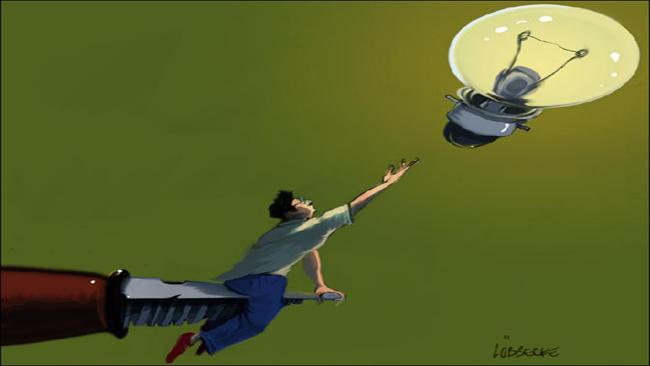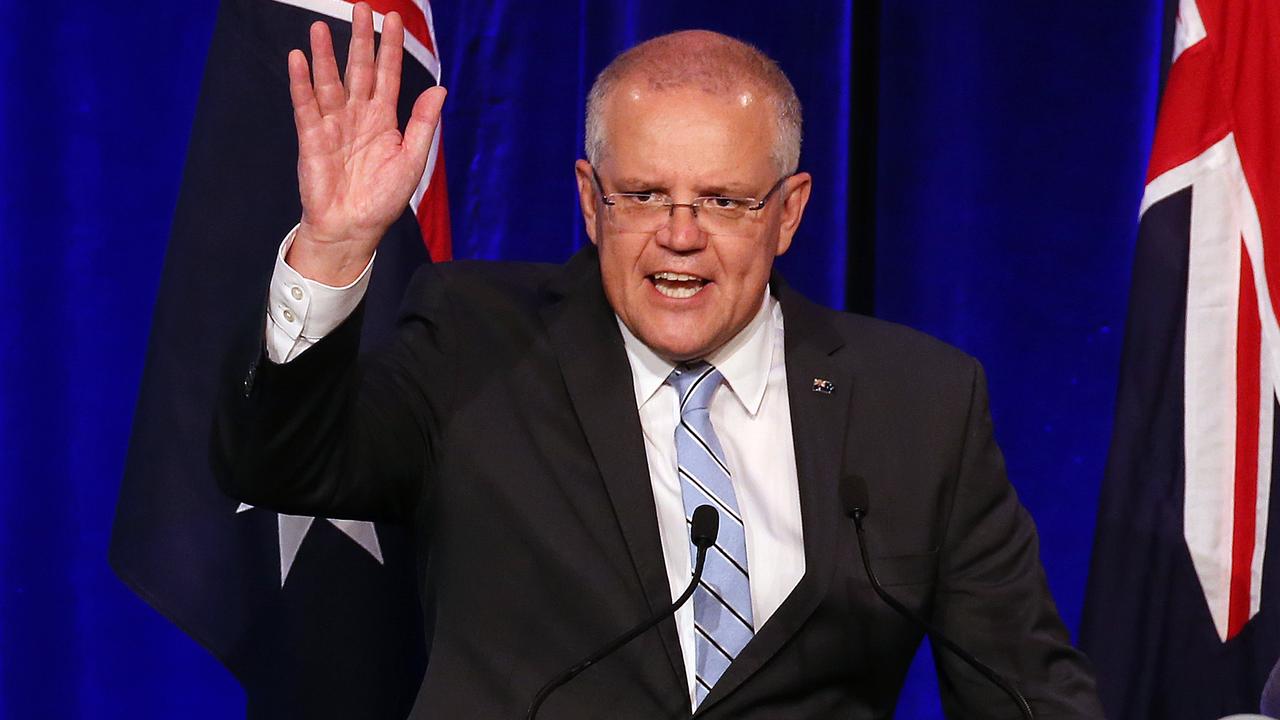Writing wrongs of education policy

IMPROVING educational standards in this country should be a first-order issue but unfortunately both major parties are overcomplicating what needs to be done in an attempt to oversell their solutions, and to fight a version of the culture wars via the education system.
Students are not leaving school with adequate written expression skills - it is as simple as that. There is a flow-on effect lowering standards in universities. The teachers doing the teaching at high school often do not possess the skills necessary to rectify this problem, meaning upskilling and curriculum reform are the twin areas in need of improvement if politicians truly want to revolutionise educational standards in Australia.
Students must learn how to write before they can be taught how to think, thereby allowing them to make judgments on what they think about various issues. It is beyond me why the teaching of basic grammar and expression effectively stops at the end of Year 6 (that is, when students are all of 11 years old), rather than continuing as a standalone compulsory subject throughout high school, including as a core unit in high-school leaving certificates.
The flow-on effect of such curriculum change would revolutionise learning. One of the reasons our political leaders can't comprehend the simplicity of what is needed to fix Australia's education system, no matter how committed philosophically they might be to improving educational opportunities, is that none of them has ever taught in a classroom. Not the Education Minister Peter Garrett. Not the former education minister and now Prime Minister, Julia Gillard. Not the opposition spokesman in education, Christopher Pyne, nor his predecessor in opposition, nor the past two education ministers from the Howard government, Julie Bishop and Brendan Nelson.
So many senior players from the federal political arena occupying this key portfolio, but not one of them with even one week's experience in a classroom. If they had to mark a pile of student essays they would quickly understand the magnitude of the problem.
I've taught only at the university level, but that experience has been enough to form the following conclusion: even at the tertiary level most students have not been taught (or at least have not absorbed) the basics of good written expression.
First-year university students fresh out of the schooling system generally struggle with essay writing. Even a tyrant should be referred to as a "who" rather than a "that", for example. And these are the students who have been deemed capable of entering university. What of the rest? When academics are forced to spend time teaching basic written expression, they are doing so at the expense of teaching what they should be focusing on: the content of the given degree.
It is not only the school system that is failing students when it comes to basic written expression. By the time students leave university - third and fourth-year students no less - their essay writing may have improved somewhat, but it is not of a standard previous generations would expect. That is because the schooling system back then focused on written expression throughout, and universities didn't tolerate poor written expression. Today poor expression in university assignments will lower the grade but it rarely results in a fail. The pressures on academics that cause this warrant a whole other article.
The university I worked at previously was a former teachers college - part of the notorious Dawkins reforms to higher education. I can recall many an essay submitted by final-year teaching students - some of whom were already doing their in-class practicums - which wasn't of a standard the community should expect from a Year 12 student, much less someone about to take up a teaching position.
The generational problem of inadequate teaching of written expression today means that the teachers doing the teaching are not up to the challenge of improving the situation, at least not without further education. It was only at the submission stage of my PhD that my supervisor told me that the ideas and the structure of the dissertation were worthy of a doctorate, but the time had come for me to pick up a book on basic writing to "fix poor expression points". Professor Bruce Stone told me in no uncertain terms: "I'll be damned if I am going to wave a PhD through to the markers that hasn't been well written."
As a member of generation X, my written expression will probably never live up to the standards expected by Professor Stone and his generational cohort, even with the (gratefully received) assistance articles such as this receive from The Weekend Australian's subeditors, who always improve my writing. Nonetheless, being forced to read through a book on grammar, even at the 11th hour, did wonders for my writing.
All students should be doing exactly that - reading and being tested on grammar and basic expression - throughout high school. Those who go on to undertake higher studies could thereafter focus on ideas and do so with the skills necessary to write about those ideas successfully. But to achieve this requires root-and-branch reform of the schooling system to upskill teachers. And some younger university academics teaching the teachers probably also need to undertake refresher courses.
The Gonski review and the follow-up legislation introduced by the government in the final week of parliament last year barely touched on this important need.
It isn't a key platform in the opposition's alternative education manifesto, either.
When the Labor Party was elected to government in 2007, the promise of an "education revolution" was a cornerstone of its policy platform. Kevin Rudd devoted his first major policy speech of the 2007 election year to education, calling for "nothing less than a revolution in education".
Julia Gillard had portfolio responsibilities for the looming revolution at the beginning of Labor's time in office, with immediate plans to bolster funding in key areas of early learning and university education. The funds did flow, but most of the increases for schools and universities came in the form of capital injections because of the need to stimulate the economy following the global financial crisis, which struck soon after Labor was elected. Curriculum reform of the order mentioned herein did not happen.
The new government had every reason to target education as a key portfolio area in need of attention, and doing anything is better than doing nothing.
Australia's educational statistics were poor by international comparison.
Our investment in education as a percentage of gross domestic product put us at 18th in the OECD, with funding for universities falling by 7 per cent during the Howard years, compared with a 48 per cent average increase across the other OECD nations.
But the grandness of Labor's aims overshadowed the simplicity of what the educational system really needs - basic curriculum reform to lift written expression, helped by upskilling the teachers doing the teaching.
Peter van Onselen is a professor at the University of Western Australia.


